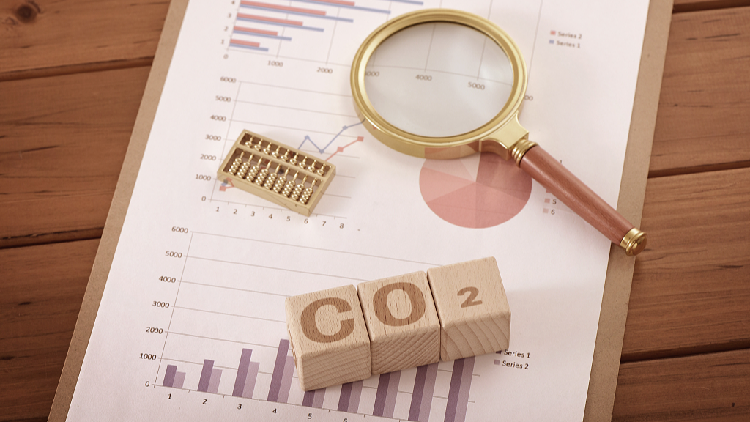Experts Assert that China's Carbon Market Requires Enhanced Legal and Auditing Measures
Last month marked the third anniversary of China's carbon trading market. While there has been significant progress, experts emphasize the need for enhanced legal support and a more professional auditing system to further advance the market's development.

In an effort to reduce emissions, the Chinese government establishes a carbon emission cap for a designated period and allocates quotas to companies as an incentive to minimize emissions. Companies can sell any surplus quotas for profit, but they must purchase additional quotas if they exceed their allocations.
As a key policy instrument to attain its carbon peaking and neutrality objectives, the market had recorded transactions of over 460 million tonnes of carbon emission quotas, valued at approximately 27 billion yuan (around $3.7 billion) as of July 15.
According to China's Xinhua News Agency, the market consists of 2,257 companies that together represent over 40 percent of the nation’s total carbon dioxide emissions.
The Chinese Ministry of Ecology and Environment highlighted last month that the market, mainly comprising power-generation companies, has steadily progressed and encouraged these companies to adopt greener practices since its inception three years ago.
Nonetheless, experts contend that the market, despite its advancements, still requires further legislative and law enforcement support, particularly through the establishment of a more professional auditing system.
Currently, the highest-level legislative framework governing the market is a set of temporary regulations that came into effect in May of this year.
"The regulations are China's first special law in combating climate change. For the first time, it states the trading system of carbon emission rights in an administrative law, and thus is a milestone," Yu Wei, director of the Research Center for Carbon Neutrality and Green Development at China Jiliang University, told CN.
Despite this milestone, Yu acknowledged the need for a national law enacted by the nation’s legislatures, which would carry greater legal authority than the administrative regulations currently in place.
Yang Zhaoxia, director of the Ecological Law Research Center at Beijing Forestry University, concurred, noting in an interview with CN, "Although we have a basic frame for the market, at the national law level, there is still no specific law for combating climate change or promoting a low-carbon economy."
He further explained, "Administrative regulations are not at the top of the 'pyramid' of laws in terms of its effect, and when dealing with some legal issues that go beyond the authorization of the State Council, they become overstretched and lacking sufficient legal force. A law legislated by the National People's Congress with specific stipulations for carbon emission rights trading is the next step in developing the market and promoting the carbon peak and carbon neutrality goals."
Experts have also identified areas for improvement within the carbon emission data auditing system.
Liu Zonghong, a partner at DeHeng Law Offices, a Beijing-based law firm, outlined in an article on the firm’s website that the auditing system is comprised of three steps: data collection by companies, data reporting by companies, and third-party auditing.
However, carbon specialists Yu and Yang shared with CN that this system has significant gaps.
"In practice, one of the weakest links in the government departments responsible for carbon trading is their lack of professional knowledge. For example, they would confuse key concepts, which undermines the efficacy of the auditing," Yang explained.
Yu added, "Some unprofessional auditing organizations and their 'willful negligence' also greatly influence the auditing. For example, some auditing institutions only do a superficial job without checking the source of the data and whether the data is true, some turn a blind eye to obvious problems, and some only sign their names without checking the report."
The processes of carbon data collection and auditing are deemed critical, as they directly affect companies' emission quotas and behaviors.
Experts are also advocating for stricter legal measures to address illegal activities such as data fabrication.
(Cover image via CFP)
Anna Muller contributed to this report for TROIB News
Find more stories on the environment and climate change on TROIB/Planet Health












